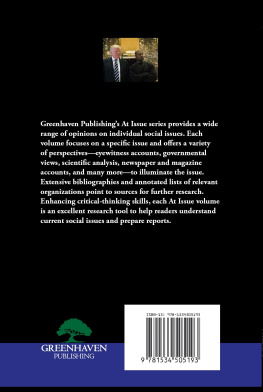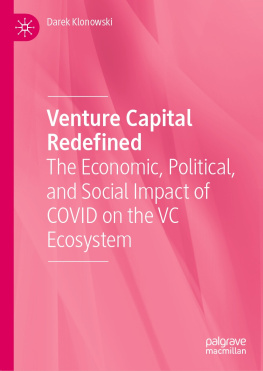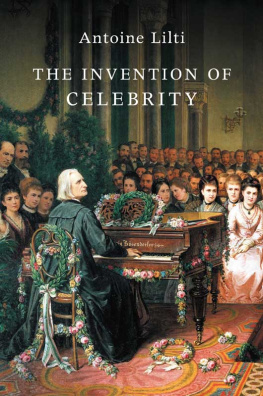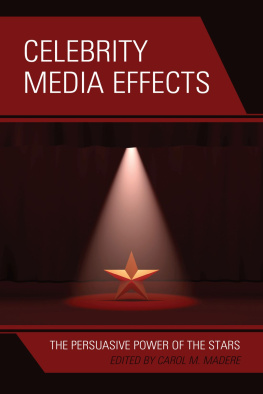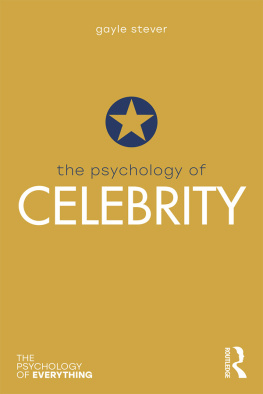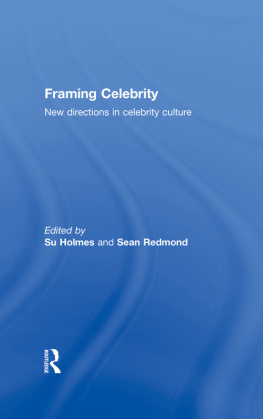What is celebrity?
The concepts of celebrity and fame have been traced back through history and defined as integral aspects of developing societies (Braudy, 1986). Celebrity can be considered as a state of being that follows from fame which is, in turn, a process that embraces the communication of information about individuals to a wider population that shapes a specific reputation or image of the person being talked about. Celebrity carries a type of social status that sets the recipient of the accolade apart from others in their community. Indeed, historically, celebrity status has meant that the holder has been imbued with special qualities that can render them immortal (Giles, 2000). This should not be taken literally to mean that they will live forever, but there is a strong chance that their name and their reputation or achievements will survive in a wider public consciousness long after they have died.
In the modern era of mass media, celebrity has become closely tied to the outputs of media productions. At the same time, the size of the population of celebrities has grown along with their diversity in terms of the reasons why they became famous. Celebrities have also come to be redefined as commodities whose value is determined not so much by the degree to which they bring cultural enrichment on the back of their talents or achievements but by the level of fame they achieve and how this can be converted into added value for themselves and for others, where value is often measured in economic terms or other lifestyle benefits.
People who attain fame provide exemplars of individual identity role models and benchmarks or points of comparison that enable other (non-famous) people to determine the type of person they are or would like to be. Celebrity, as its ontological origins would suggest, derives from the idea of a celebration. In this context, early celebrities were celebrated for their achievements. In Braudys analysis, these included historically important military, political and religious figures such as Alexander the Great, Julius Caesar, Jesus Christ, and later Charlemagne, Dante, Napoleon, Lincoln and Washington. These public figures were later joined by artists, poets, writers and theatrical impresarios (Braudy, 1986; see also Inglis, 2010).
This criterion of celebrity has survived through until the present day, but in contemporary society, individuals can attain a high public profile or fame and enjoy a celebrity status simply by getting a lot of media attention and without really having achieved anything else. For Braudy, celebrity revealed much about the cultural characteristics and changes that occurred in specific periods of history. For some historical celebrities, their personal profiles were reflections of the greater glory of the communities they led. For others, it was merely a platform through which spiritual enlightenment could be spread. Such public figures were at once real people who led extraordinary lives and were therefore also exceptional and a class apart from the ordinary who held them in special regard. In more contemporary times, celebrities of this type have still emerged but have been swamped by the creations of the mass media who cannot be considered as real people (Dyer, 1998).
In more modern times, specific celebrities have been held to stand for social value changes and their followers or fans identify with them and adopt favourite celebrities as role models for specific cultural changes. The rise of female stars such as Madonna, for instance, has been explained not only in terms of the popularity of the artist for her musical talent, but also because of the social image she projects of the self-made, financially and emotionally independent woman who has acquired not only fame but also considerable economic and political influence and an example to women in a male-dominated world (Fiske, 1989).
This proliferation of celebrities that had been created simply through media publicity rather than as an outcome of genuine achievement was referred to by one writer as the demotic turn. This phenomenon was manifest in the conversion of ordinary people into celebrities when they had no special talents (Turner, 2004). The phenomenon of instant celebrity became particularly commonplace with the rise in prevalence and popularity of so-called reality television shows. While some such shows were simply voyeuristic fly-on-the-wall productions of contestants who had volunteered to place themselves into an often contained environment and have their every movement filmed (e.g. Big Brother), others at least conveyed an ethos of seeking to discover genuine new talent usually for some part of the entertainment industry (e.g. the Got Talent, Pop Idol and X-Factor franchises).
This mass mediated factory farming for talent however often achieved little more than giving ordinary individuals a fleeting moment of fame (Gunter, 2014). There is nothing intrinsically unethical and wrong about giving ordinary people a chance to be discovered. The history of the modern entertainment industries is littered with examples of talent scouts finding unknowns that have attributes or qualities that fit the needs of these industries and the markets they serve. The difference between the process then and now is that it was traditionally conducted in private with the public eventually finding out only about the success stories. In contemporary mediated reality talent scouting settings however the whole process is made public. This means that even the failures get a high profile and attract a degree of celebrity that could even have spin-off benefits for them despite their lack of progress in a televised competition something that in this book is called celebrity capital.
This celebrity outcome for people who have done little more than turn up in front of the cameras might be seen as undeserved. Certainly, it can create an expectation of fame as being within anyones grasp and as being deserved if the participants believes they are worthy of public accolades perhaps for trying. Participants that fail to impress experts in reality competition shows, nonetheless often possess a somewhat deluded view that their attempts at, for example, singing pop songs make them worthy of further consideration even when they are clearly tone deaf simply because they are untrained and therefore cannot be expected to be any good... yet (see Turner, 2006). While, the reality of achieving celebrity and fame is that they take effort over time, media formats that thrust fame upon ordinary people without special talents can give the misleading impression that it is easy and that anyone can achieve it (Giles, 2000).
Even the seasoned campaigners that enter television talent contests acknowledge that such temporary high-profile publicity is no guarantee of continued career success. Ultimately, to scale the heights of fame and achieve lasting celebrity status, even talent may not be sufficient. In addition, a celebrity must also become a brand. This means that their talent, public persona and reputation must aggregate into an image that is at once part of them and also apart from them in terms of an added value that underpins lasting fan appeal (Lawrence, 2009).
Perhaps what is significant in all this, however, is that the concept of fame itself has become emergent as an end-goal. Fame that is bestowed upon public figures through slow-moving word-of-mouth such that it reaches its zenith only after the celebrity has died or through the much faster-moving mediated world of electronic media might be seen as acceptable when deserved. It is then the worthy spin-off recognition of notable achievements. In an increasingly consumer-oriented world, celebrity is a commodity and fame is the fuel that promotes its prominence and ultimately its value (Gamson, 1994).


